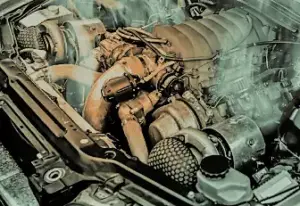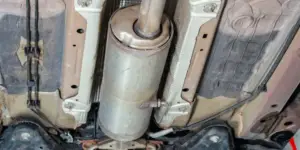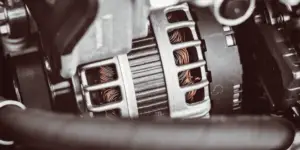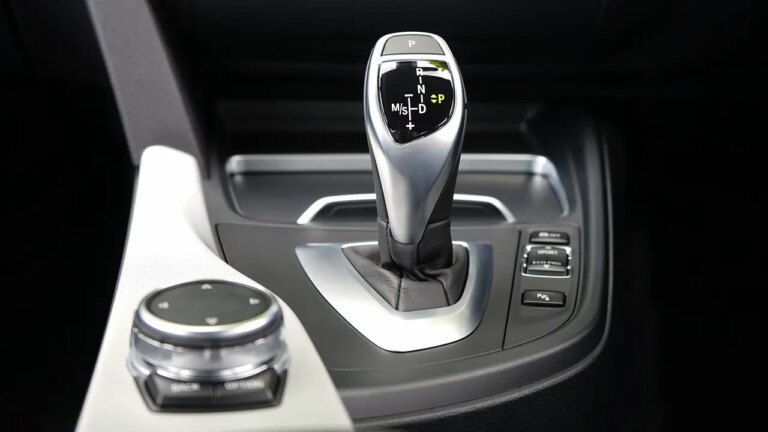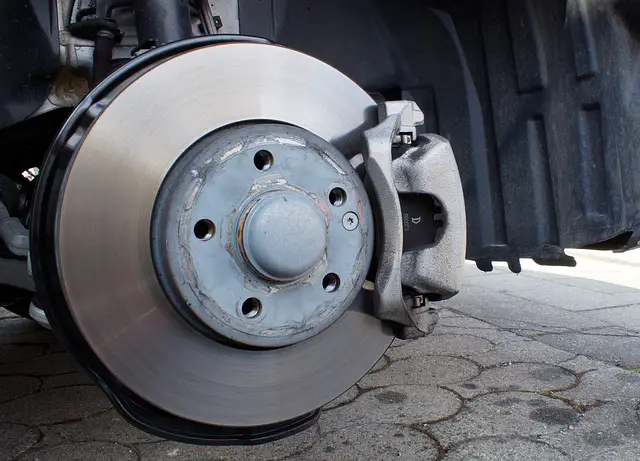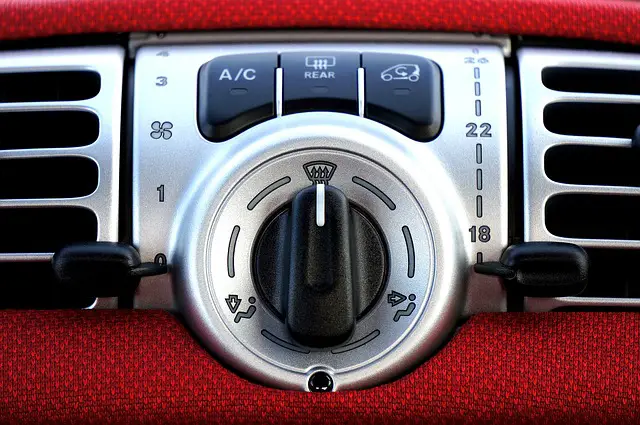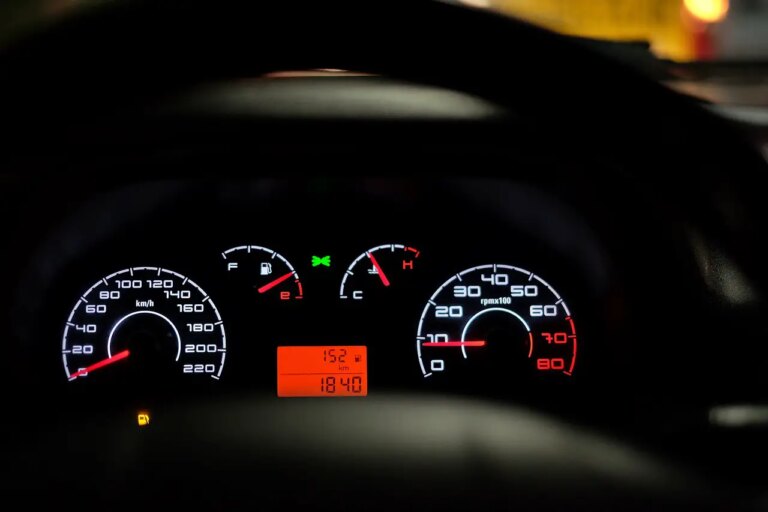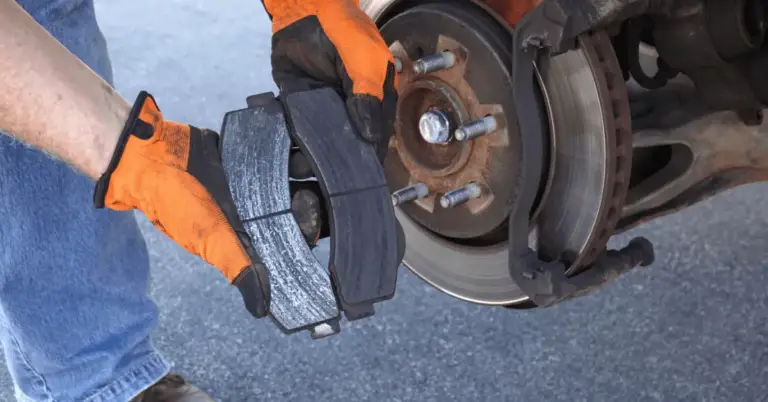This is a highly unusual symptom of a faulty alternator.
While the engine is running, the alternator is in charge of powering electrical components.
As you can see, at first glance, there isn’t much of a link between a damaged alternator and your engine shaking. The engine runs the car, and the alternator provides the electrical power.
With that being said, if your car is shaking and you’ve ruled out all other potential causes we’ll list below, there are some alternator checks to make sure:
The alternator may be grounded intermittently or be so weak it isn’t providing enough power to the coil to create a spark in the plugs.
Intermittently grounding is the keyword here. If it weren’t grounded, it would be clearer that there was a problem with the grounding, and your car wouldn’t run.
A simple check is to disconnect the alternator and keep your car running for at least ten minutes. Just make sure your battery is fully charged before doing this. If it is, it should last 10 minutes without the alternator charging it. Turn off the lights, the radio, and the air conditioning.
If there is no shake when the alternator is detached, the problem is with the alternator, it’s grounding and the grounding strap.
That’s good, as you’ve narrowed the fault right down. The grounding strap should lead from the alternator to the engine block frame. From here, the charge will find its way to the ground. If the strap is bad, you’ll have a bad ground and a chance the engine will shake, especially when at idle.
Sensors like the crank position sensor are susceptible to a bad alternator. If the ECU receives an erroneous signal, the coil may not fire when it is supposed to, resulting in the engine shaking.
If you don’t have an OBD reader, now might be the time to buy one. It can narrow down the potential faults saving you a lot of time diagnosing car faults.
Connect your car to an OBD reader and look for the P0562 error code. This code indicates a faulty alternator.
Finally, double-check your wiring harness. Because this is in charge of transporting power to the components that require it, a problem can spread to the spark plugs, sensors, and the ECU. Look for fraying and brittleness along its length.
There are many more likely signs of a bad alternator; we’ll examine these here. The more you can say yes; the more likely the alternator is faulty.
Signs Of A Bad Alternator
Flickering Headlights
A really common symptom.
The alternator is likely to blame if your headlights, interior car lights, or even dash lights are flickering bright and then dull. If your lights increase in brightness as you press the gas pedal and then dim as you release the pedal, your alternator is the prime suspect.

Once you notice this, it is just a matter of time before other parts start to get less power than they need. In winter, for instance, when you demand more power from your heater and lights, the alternator will be under increased strain.
Poor Electrical Systems Performance
The alternator powers electric windows, climate control, the car heater, electric seats, heated seats, and a sound system. If you notice that these parts are not working as they should when you’re driving, the alternator is likely to blame.
The alternator is under real stress when you load it with more tasks. Bear in mind it also has to recharge the battery at this time too. That’s a lot of energy to find.
Even if the alternator is producing enough power, it may not be able to get that power to the components if the wiring is worn or badly connected.
Loose wiring in any part of the vehicle’s electrical system can drain the battery and make the alternator work harder to generate enough electricity.
Often when this happens, one side of the alternator gets hotter than the other. If your alternator is hot on one side, this indicates that a diode within it has gone bad.
The diode’s job is to change AC into DC required to run all the car electrical systems we’ve already mentioned.
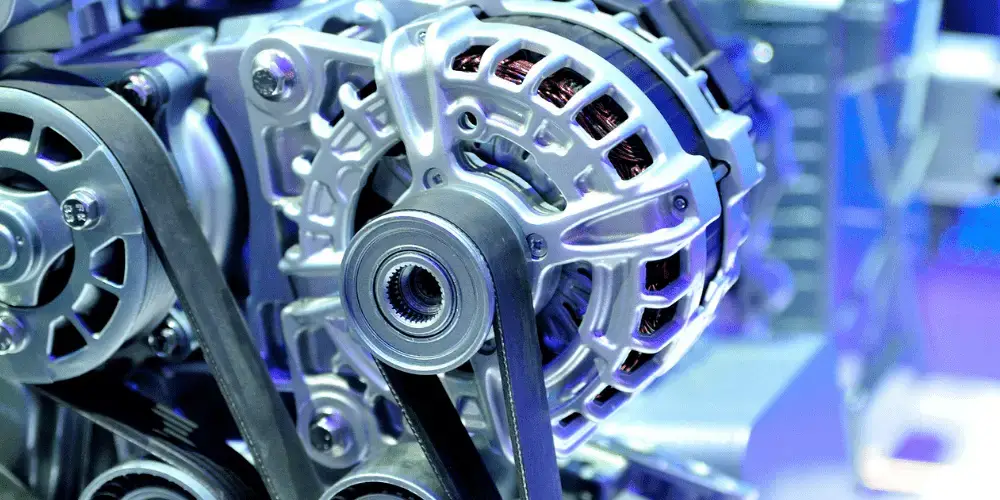
The battery warning light may come on while driving to inform you that the alternator is not charging the battery. This may be a battery problem, but if your electrical systems are sluggish, this points to the alternator.
You may get a whole host of dash warning lights when this happens. The battery alternator light will come on. In addition, you’ll also get a check engine light coming on if the ECU gets incorrect sensor readings from the crankshaft.
Worn Serpentine Belt
Okay, I know it’s not a symptom of a bad alternator, but a loose serpentine belt can have an effect on the alternator and stop it from working as it should,
A little basic mechanical knowledge here. Sorry if you know this already.
The serpentine belt turns the alternator that snakes its way from the side of the engine to the alternator and other electrical components, such as the power steering pump and water pump. If loose or frayed, it becomes less efficient.
It may need to be adjusted if the belt is slipping – normally accompanied by a screeching noise – often first thing in the morning when you start your car, and the engine is cold.
These belts do wear and become brittle. If your car’s alternator isn’t performing as well as it should, you should always check the belt first, as this is a cheap and easy fix.
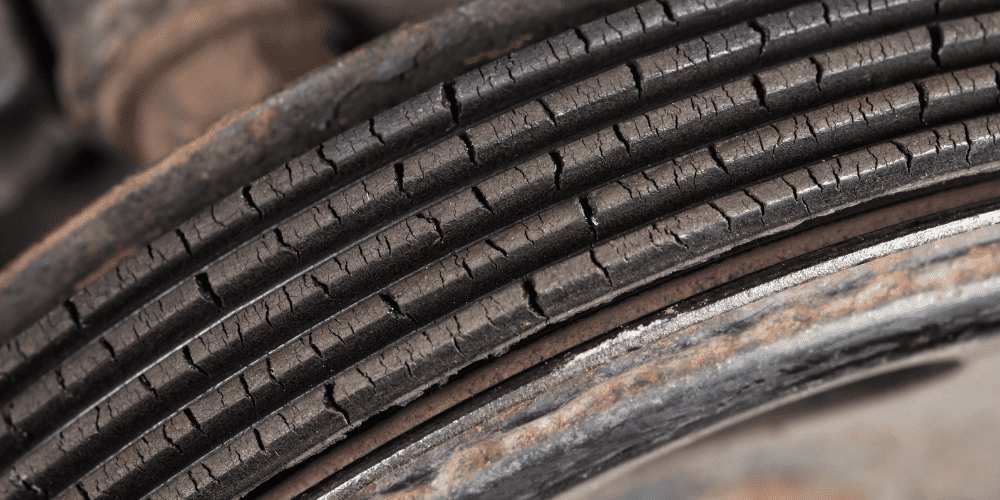
The serpentine belt leaves the left side of your engine and travels to the alternator before going through the engine. It’s easy to spot.
If you hold it between your forefinger and thumb and twist it, it should turn more than 1/12 inch. If it doesn’t, it needs tightening up. While there, check the belts all round condition. Is it still shiny and flexible, or has it become brittle?
Burning Smells
Alternator Burning Smell
Your alternator does get hot. It produces a great amount of energy but also has parts that spin within it above 6000 rpm. That also generates heat. An alternator is air-cooled. When you look at it, you’ll see that it has a series of air vents or openings on the case. This is to cool the alternator and allow heat to escape.
There are two distinct smells you’re likely to encounter.
The first is an electrical burning smell. This is a sure sign that it’s overheating and can be a sign that the diode is struggling to change the current.
An overheating alternator bearing causes a slightly different smell. Bearings are encased in grease, and grease is made from oil or synthetic oil. It’ll give off a more pungent burning smell when this heats up.
The Car Won’t Start
The battery often gets blamed for a car not starting in the morning.
Many replace their battery believing it’s at fault, only to find the new one they’ve bought also goes flat.
The alternator’s job is to generate the power needed to run the electrical systems when the car is traveling but also to charge the battery.

A car battery’s sole job is to have enough power to start the car. Once it’s done this job, the alternator is designed to take over. The alternator also recharges the battery, so it is fully charged for the next time your car needs to start.
Car Stalls At Idle
Usually, a car shakes because it is either not getting enough oxygen into the engine or there is a lack of fuel. The engine needs both in exact measures to operate well.
Sometimes when the alternator fails, it’ll drop the voltage below 12.5 volts; when it does, it can upset the crankshaft sensor. If the crankshaft sensor sends a bad signal back to the ECU, it’ll interrupt the timing of the engine, and misfiring and engine vibration can happen.
This often happens when idle, as the alternator isn’t being asked to work as hard as it would if the car was being driven.
Visitors also read: Alternator Causing Rough Idle – One Quick Check [SOLVED]
What Else Might Be Causing the Engine To Shake?
As we discussed at the start of this article, it isn’t common for the alternator to cause your engine to vibrate.
We’ve explored the other symptoms of a bad alternator.
Now we’ll explore what other parts’ failures could also cause your engine to shake.
To reiterate. Your engine is likely to perform badly if there is an interruption in the amount of fuel or air the engine receives.
A Blocked Fuel Injector.
When an injector clogs, the correct amount of fuel is not mixed into the combustion chamber—running lean means that air fills most of the volume in the cylinder.
Fuel injectors become clogged with carbon, especially if the fuel filter has allowed impurities to leave the fuel tank and enter the engine.
A Vacuum Seal That Isn’t Working
This can cause the chamber to deflate, producing issues with the combustion process. This is common if only one cylinder is leaking. The shake is caused by a loss of pressure or excess air being sucked out of the chamber, leaving insufficient oxygen to ignite the fuel properly.
This can be accompanied by a hissing or sucking noise from the engine.
Blocked Catalytic Converter or Exhaust Pipe
Exhaust gases can cause problems with the car’s sensors if they don’t depart the system properly or if their flow is hampered by a clogged exhaust pipe/catalytic converter.
Your car has an EGR valve that is tasked with returning unburned fuel from the exhaust to the engine, where it gets combusted a second time. This improves fuel economy.
Like any valve, these valves can get stuck and cause the engine to stop working effectively.
A blocked catalytic converter will increase the pressure in the exhaust system. The DPF sensor in a diesel car will signal to the ECU that there is an increase beyond its normal limits.
This, in turn, will stop the amount of diesel being sent into the engine to be combusted. The result is poor performance and engine shaking.
Popular related article: New Catalytic Converter Smell – Dangers, Causes and Fixes
Spark Plugs
The typical spark plug’s life has significantly increased. What used to be a 12,000-mile service life has now expanded to 100,000 miles or more.
They are, however, not impervious to wear and tear and can accumulate deposits that prevent them from firing smoothly. That car will shake if they don’t fire at the right time.
In Summary
In situations where the alternator stops producing enough electricity to fire the car’s spark plug. The vehicle may begin to vibrate and shake and may even stop and stall while you’re driving or have trouble starting. A shaking car is one of the many indicators of a failing alternator.
Although the alternator is unlikely to cause your car to shake, if you have checked all other more likely causes and ruled them out, it is worth considering if the alternator isn’t grounded properly.
This intermittent grounding can disrupt the crankshaft sensor and the smooth firing sequence of the engine. This will also coincide with a brief increase in the RPMs


